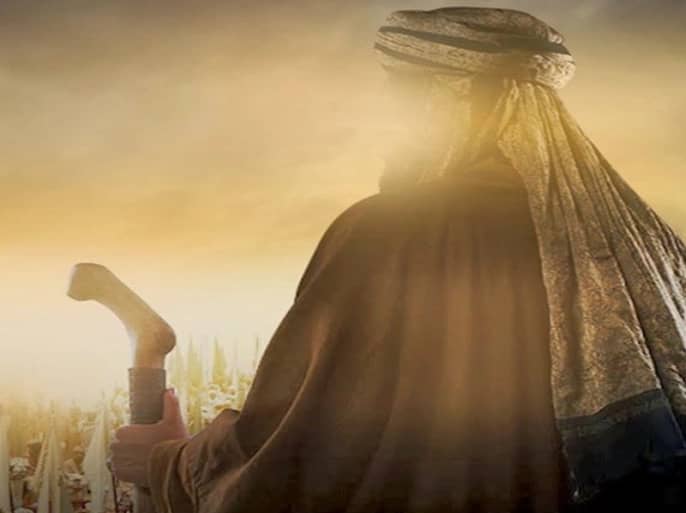The Biography of Imam Ali (PBUH) Part Five: How did non-Muslims view Abu Turab ??
Although the Imam is one of the most important symbols of Islam, after the Prophet Muhammad, may Allahs prayers be upon him and his family, those who adored him and were attracted by his thought, and were interested in his biography and his model, included a wide range of cultural, intellectual and national races.
Thus how did they see him?
Mikhail Naima says:
Was Ali, peace be upon him, one of the great people in the world for the great ones to have the right to talk about him, or someone who came from heaven for the kingsmen to understand his status? For what level do the religious people want to know other than the one they knew because of their rank? With what supplies do philosophers need except for the limited sciences they have? What the great, pious, and philosophers understood with all their noble virtues and unique sciences, yet they understood it through their presence, the limited mirror of their souls, and Ali is otherwise.
As for George Jerdak, he said:
Ali bin Abi Talib had an important relation regarding the history of human rights, and his views concerning it are closely related to Islam on that day. They revolve around the axis of raising tyranny and eliminating class disparities between people, and whoever knew Ali bin Abi Talib and his position on the issues of society realized that he is the sword hanging over the necks of tyrants, and that he seeks to focus social justice with his opinions, literature, government and policy. However in every position he had, he faced those who transgressed the public rights, abuse people, disdain their interests, and establish glory on exhausted backs.
The writer Gibran Khalil Gibran says about the Imam:
"In my belief that Abi Talibs son was the first Arabic person to adhere to the Holy Spirit, he was close enough to it, and used to hangout with it. He was the first Arabic one whose lips addressed the echo of its holy words that reached, for the first time, the ears of people so they were lost between his rhetoric approaches, and the darkness of their past. So whoever was impressed by him, it was an innately reliable admiration, and who antagonized him were the descendants of the Jahilyyah . "
According to the thinkers, the Imam was the last opportunity for humanity to learn from him, and to be raised by him on the special morals entitled justice and equality among all humans. As his thought was the essence of the religions that all the prophets brought and which Ali bin Abi Talib, peace be upon him, learned and imbibed from their sources. So he was the best student for the greatest teachers, he deserved to be called "the educator of nations."
But unfortunately, the nations, starting from his own one in his time, didn’t follow or obey him, and the citizens of his country weren’t at the level of his thought, philosophy, and justice. Because of that the Imam was martyred before he built the virtuous city in the souls of the members of the human community since building a righteous and virtuous person for the Imam, peace be upon him, is the origin of the urbanism and civilization, the pillar of states, and immunity to justice and equality. These are considered as the immunity to the ruler and the ruled, and the basis of the true virtuous city, and its shield that protects it from becoming an empire of oppression and darkness.
Guest 3
Guest 4
Guest 5
Vo
Sheikh Muhammad Abdo said regarding the Imam:
In the presence of the Imam, I used to truly see a luminous mind, not like any physical creation. He is separated from the divine compound, and connected with the human spirit, so he was sheltered from the bad nature, and raised him up to the higher kingdom.
Islamic researcher and thinker Abd al-Rahman al-Sharqawi said:
Humanity wasnt subjected to a ruler who had been afflicted with abnormal seditions, despite his keenness to please others, protect justice, establish truth, and push back against falsehood.
Philosopher and thinker Shibli Al-Shamil said:
Imam Ali bin Abi Talib, great, a single copy, the East didn’t see an exact copy, neither old nor modern.
Edward Gibbon, the British historian, said of the Imam:
Imam Ali is a unique, brilliant personality, a poet, a believer, a noble and a saint, whose wisdom is like the breeze that every person breathes, for it is moral and humanitarian, from his birth to his death, he was wise, he gathered his disciples and called them to my brothers and loved ones. Indeed, he was like the renewed Haron who was a friend of the Prophet Musa, as described by the Prophet Muhammad (PBUH).
Henry Staub, a British physician and thinker says:
The Imam despised the materialistic world and its deceptive glory. He feared only from Allah and was a philanthropist, striving to good, the first and preceding to every divine act, his judgment was sociable, and he had creativity and sharp intelligence. So he seemed strange to his society, because creativity wasnt common. He didn’t possess those sciences that It ends on the tongue, but that hidden science and wisdom that extends and never ends or perishes.
For his part, the late Sheikh Muhammad Metwalli Sharawi considers that Imam Ali ibn Abi Talib isnt counted in comparison with the rest of the Companions, yet he is unique and attached to his characteristics. As he was at the same position with the Prophet in a position so that nobody of the Companions can reach his rank. It is clear that the Sheikh’s words aren’t based only on emotions, but rather on the consensus of the sources in particular, "the two authors of the Book of Ishah, where it is mentioned:
"The only one who the Prophet, may Allah’s prayers and peace be upon him his family, considered Ali, peace be upon him, to be for him among the Companions, at the same level of Haron to Musa."
From what the thinkers agreed on regarding the Imam - peace be upon him - was that he was qualified to be the teacher of mankind and the builder of a human civilization by utopian standards, not by the standards of the first Hijri century. His goal wasn’t building an empire that would rule countries, but rather building an empire of ethics in the souls of people before building states, governments and capitals.
Ali ibn Abi Talib, peace be upon him, was a flood of divine love that if people accepted it and searched for it, they would obtain deliverance from evils and generations would have been produced out of their wombs to love and get acquainted and cooperate with each other, reconcile between each other, build and enliven the world with goodness, don’t hold grudges against each other, and don’t exchange invasion and extermination.
The perfect human is created by Allah Almighty in the most beautiful image and this is what Ali bin Abi Talib, peace be upon him, was like, but those who were during his time didn’t understand him, nor did they understand what he was calling for.
Are we now going to start correcting the course of history?
In 1949, the Geneva Convention, which preserves the rights of soldiers and the wounded who fall into captivity and that included guarantees for a humanitarian treatment for prisoners who fall into the grip of enemies, was adopted.
But a thousand four hundred years before the Geneva Convention, and before the Swedish and Swiss laws that define the way the authorities must deal with prisoners accused or convicted of murder, Ali bin Abi Talib, peace be upon him, taught the highest principles in how to treat a prisoner who assassinated theImam later on. So when he was on the verge of death, he said:
"Be compassionate, my son, with your captor, have mercy on him and be kinder to him, and have compassion for him. Dont you see his eyes twitching, and his heart trembling in fear terror and panic, we are “Ahl Al-Bayt who dont increase the guilt to us except generosity and pardon and mercy and compassion are from our goodness and not from his goodness. So I would please you for my sake to feed him, my son, from what you eat, let him drink from what you drink, dont tie up his foot, and don’t handcuff him. If I died, then punish him with the same blow, and don’t kill the man. However I was alive, it’s better that I forgive him, and I know what I do with him later”.
So how great is this perfect person? How did the French Revolution in the nineteenth century represent a starting point for humanity towards justice and equality, however, his humanitarian march didnt constitute a starting point for humanity towards comprehensive justice and a complete human civilization?
Thus this poet did show honesty when he said for the sake of Imam Ali ibn Abi Talib (PBUH):
Whenever I oppose the painful situations ..... I would be branded with pain because of lifetime troubles
I started complaining to Ali about my big deal ........ and Ali is a shelter protecting from all worries
I search for the right among the greatest figures ....... however Ali is the right’s noble ensign
For the oppressor is like a thunderclap ... and for the oppressed among us, he abstain
For justice he keeps it away from any harm ..... he is a unique creation, a sword, and a pen
Who is for homelands that are overwhelmed by violence ... and for lands over which poverty perches
Other than a fair approach in his judgment ...... that lifts up misery if injustice took a place in judgment





